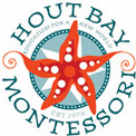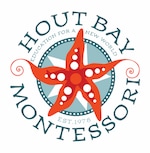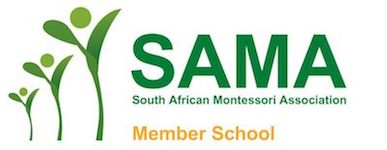FAQ About Our Nursery/Preschool Classrooms
Go directly to the FAQ section for Primary.
What is your schools method of teaching?
As a Montessori school, we approach education using the Montessori method. This is a child-centred approach to learning, where a child’s independence is valued and celebrated.
Classes are grouped in age bands of three years, allowing younger children the opportunity of learning from their peers, and older children the opportunity to be leaders and set an example.
Children are given freedom within boundaries, and a rich environment to explore their interests, with directresses who provide the right challenges at the right times.
Classes are grouped in age bands of three years, allowing younger children the opportunity of learning from their peers, and older children the opportunity to be leaders and set an example.
Children are given freedom within boundaries, and a rich environment to explore their interests, with directresses who provide the right challenges at the right times.
What do you look for in your teachers?
We look for heart-centred, dynamic and nurturing individuals to join our teaching staff. Our directresses vary in years of experience, from one in her first year as a directress, to 20 years. Our 3 pre-school classes have an apprenticeship system – the assistants are either busy studying or have recently qualified and are very much a part of the staff team. We really acknowledge and appreciate new Montessori techniques and philosophy.
The primary teachers are all registered with the South African Council of Educators – this is compulsory.
The primary teachers are all registered with the South African Council of Educators – this is compulsory.
What are your schools values?
We value the child as a whole – and as an individual. In a world of increasing complexity and change, Montessori remains a time-tested, progressive approach to education that cultivates independent and capable individuals with the requisite life skills to navigate change.
We value the families in our school. We function as a resource centre linking children, staff parents and the local community to pioneering thinking and practices within a global community. Similarly we value and draw on the resourcefulness of each member of this system to collaborate and create towards our highest potential.
We value a pure Montessori environment. Our immediate environment is designed and prepared according to Montessori principles encouraging self-directed, tactile and movement based learning. Classes are maintained to an ideal size of the social empowerment of each child.
We value the natural environment. We embody and promote a symbiotic relationship with the environment, respecting and working with the innate wisdom and rhythms of nature and within the realities of the social environment. Cultural life at the school reflects the cultural celebrations and practices from near and far.
We value the families in our school. We function as a resource centre linking children, staff parents and the local community to pioneering thinking and practices within a global community. Similarly we value and draw on the resourcefulness of each member of this system to collaborate and create towards our highest potential.
We value a pure Montessori environment. Our immediate environment is designed and prepared according to Montessori principles encouraging self-directed, tactile and movement based learning. Classes are maintained to an ideal size of the social empowerment of each child.
We value the natural environment. We embody and promote a symbiotic relationship with the environment, respecting and working with the innate wisdom and rhythms of nature and within the realities of the social environment. Cultural life at the school reflects the cultural celebrations and practices from near and far.
How is the day structured?
Drop off time for preschool classes is between 8am and 8.30am. Our uninterrupted three hour work cycle runs from 8.30am to 11.30am. This includes presentations of new work, independent consolidation of work, snack, and circle time with the class. Children then get the opportunity for free play outside until 12.15pm, followed by story time. The school day finishes at 12.30pm. Children staying for extra murals or aftercare will then have lunch until 1pm, when aftercare starts.
What extra-mural activities are offered?
We offer a variety of after school activities that complements a child’s morning in the classroom. In preschool these include art, drama, Playball and yoga.
Our aftercare programme is run by a qualified teacher who provides an afternoon of fun. Activities vary from day to day, but include art, crafts, jewellery making, singing, acting, stories and supervised free play.
Our aftercare programme is run by a qualified teacher who provides an afternoon of fun. Activities vary from day to day, but include art, crafts, jewellery making, singing, acting, stories and supervised free play.
FAQ About Our Junior/Senior Primary Classrooms
- When do we know a child is ready to move into your elementary program?
- Is your elementary a Montessori programme or more traditionally based?
- Are elementary teachers trained?
- Is homework assigned?
- How are the basic skills of reading, writing, and arithmetic emphasised?
- How do lessons in elementary provide a rich content?
- How much physical activity do the children get per day?
- Are there any after school activities?
When do we know a child is ready to move into your elementary programme?
We follow the government school’s age groups. Children are eligible for junior primary in the year they turn 7. They are ready for senior primary in the year they turn 10. Any child who is needing extra support in the group below, is able to fetch materials and continue with their curriculum for as long as necessary - usually with extra support. Any child who is functioning ahead of the curve academically is included in lessons in the group above. Our school has a very strong grade R programme. Children are kept in the pre-school for that final consolidation year.
Is your elementary a Montessori program or more traditionally based?
Our elementary programme is an authentic Montessori one:
- Mixed ages
- One uninterrupted 3-hour work cycle and a second shorter one every day
- No rewards or punishments are used
- Mixed ages
- One uninterrupted 3-hour work cycle and a second shorter one every day
- No rewards or punishments are used
Are elementary teachers trained?
Our elementary directresses are qualified in both Montessori pre-school and primary and are all registered with the South African Council of Educators.
Is homework assigned?
We don’t assign homework. We do encourage our children to read and practice Maths memorisation every day. In the 9 to 12 programme, the children sometimes choose projects to complete at home or finish research at home with parents.
How are the basic skills of reading, writing, and arithmetic emphasised?
The children’s learning is guided by a schedule, which ensures they read and practice handwriting daily. The children move through the mathematics and geometry curriculum at their own pace through individual lessons.
How do lessons in elementary provide a rich content?
The lessons in elementary are designed to capture a child’s imagination. The elementary curriculum integrates all subjects. For example, the “Story of the creation of the Universe” incorporates the laws of physics and chemistry with hands-on demonstrations that the children can do as free choice activities.
How much physical activity do the children get per day?
The children play sport with a coach twice a week – on a Tuesday and Thursday. They play cricket and softball in the Summer and soccer during the Winter. They occasionally play matches against a neighbouring Montessori school. Apart from these times, the primary children have their own outside time, but are also allowed to move freely between all classes.
Are there any after school activities?
We have an extensive range of after school activities. Please read our extra-mural schedule.
|
The SAMA website has been created especially for the members of the Association but also for the general Montessori public. Click here to find out more.
|


